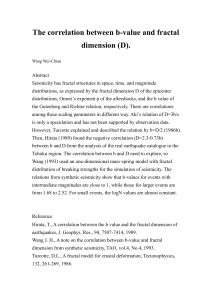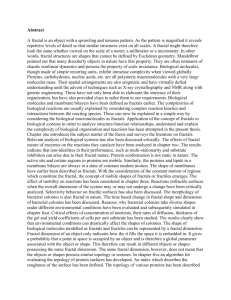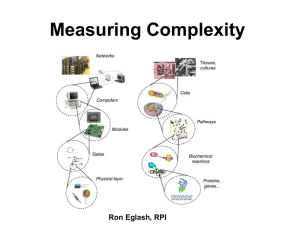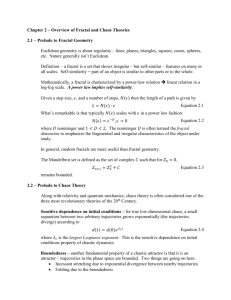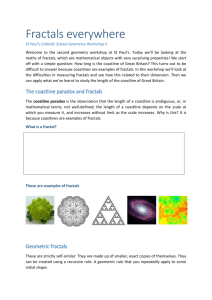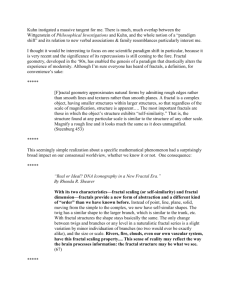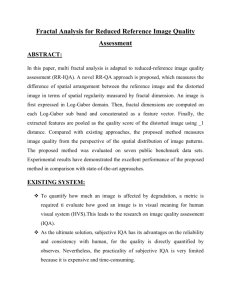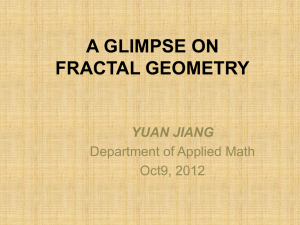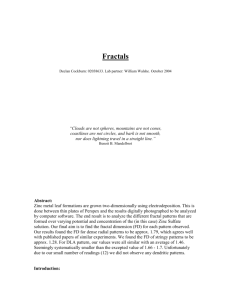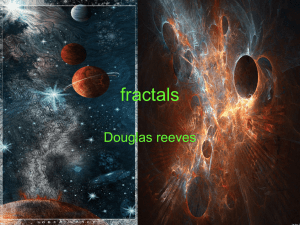fractal dimension
advertisement
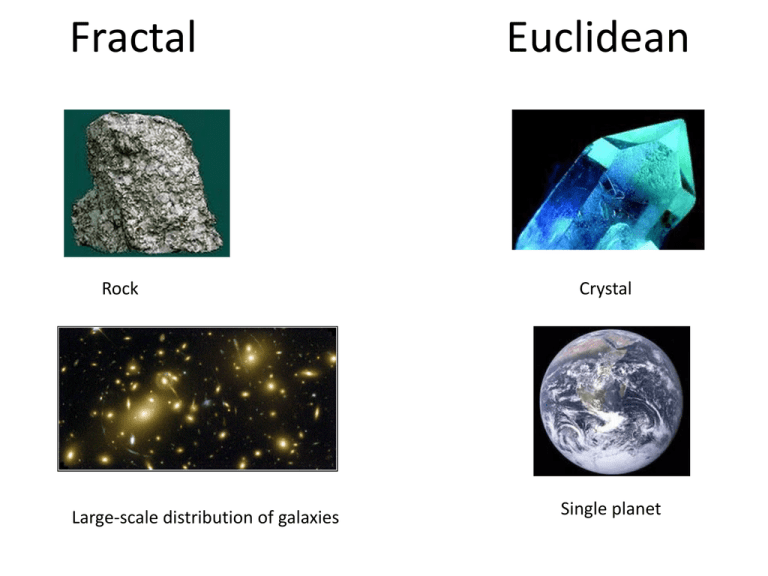
Fractal Rock Large-scale distribution of galaxies Euclidean Crystal Single planet Fractal tree Euclidean bamboo Math is just a way of modeling reality. The model is only useful for the context you put it in. The earth from far away is a point. Closer up it looks like a sphere. Closer still we see fractal coastlines. Zoom far enough down and you might see Euclidean striations in a rock Finding fractals at home Fractal have nonlinear scaling Fractals have global self-similarity Scaling Zoom into a coastline and you see similar shapes at different scales Zoom into a fractal and you see similar shapes at different scales Fractal Generation Different seed shapes give different fractal curves Measuring fractals with Euclidean geometry doesn’t work Measuring fractals by plotting length vs rule size does work Fractal Dimension By how much did it shrink? If the original was 3 inches, the copy must be only 1 inch. It is scaled down by r=1/3 That ratio is consistent for all 4 lines, at every iteration Scaling ratio in Euclidean objects A line has one, side, so you get 2 copies Bisecting in each direction gives us N identical copies. Each scaled down by r=1/N. The number of copies for bisecting is N=2D They are scaled down by r=1/2D A square has two sides, so you get 4 copies A cube has 3 sides, so you get 8 copies Scaling ratio in Euclidean objects A line has one, side, so you get 3 copies The number of copies for trisecting is 3D . They are scaled down by r=1/3D Bisecting scales down by 1/ 2D Trisecting scales down by 1/ 3D In general, N= r-D A square has two sides, so you get 9 copies A cube has 3 sides, so you get 27 copies Fractal Dimension In general, N= r-D Solving for D, we have D = log(N)/ log(1/r) In the Koch curve, we have 4 lines, so N = 4. But they are scaled down by 1/3! So D = log(4)/ log(1/3) = 1.26 A fractional dimension! Fractal Dimension and Power laws Recall D = log(4)/ log(1/3) = 1.26 Large scale events occur rarely, small events more frequently. Note above there is only one big ^ and 4 little ^. Power law: frequency “y” of an occurrence of a given size “x” is inversely proportional to some power D of its size. y(x) = x−D. Fractal dimension: log(y(x)) = −D*log(x), where D is the fractal dimension Fractal Dimension How can a dimension be fractional? As the Koch curve becomes more “crinkly” it takes up more and more of the 2D surface. Eventually it will be a “space filling” curve of D=2 Bifurcation Map Recall that the logistic map is a fractal: similar structure at different scales. This is true for ALL strange attractors: any system with deterministic chaos will have a fractal phase space trajectory
